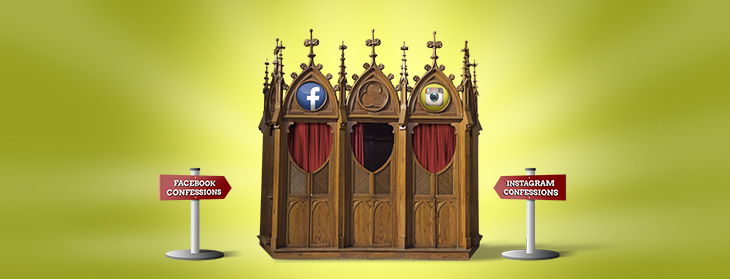
Oversharing: You’ve probably done it, too. Everyone else has.
Posted On May 4, 2017
How many times, as we scroll through our social media pages, do we find ourselves shaking our heads and muttering: “TMI?”
Embarrassing moments, catty observations and gossip, judgmental pet peeves, our romantic relationships and sex lives, what we ate for lunch – it seems that today, almost nothing is too risqué, too personal or too humdrum to be shared for our online “friends” to see. Or depending on our privacy settings, the whole world.
Seriously, people don’t care what our pulled pork sandwich looks like. And yet, we pull out our cellphones, snap a photo and post it to Facebook anyway.
And as most of us can readily attest after having lived through the most recent presidential election, there are few things that’ll send us scrambling for the mute button quicker than someone who won’t shut up about their political views.
Don’t want to get blocked? Give the politics a rest – and fact-check your memes.
In a recent Mashable blog post, Rachel Thompson cites sociologist Zygmunt Bauman, who believes social media has created a “confessional society” where we essentially feel obligated to share the intimate details of our lives.
We see our friends sharing a photo of their lunch or video of the concert they recently attended, and we feel obliged to do the same. They all look like they’re having so much fun. We don’t want people to think we’re not. Conversely, when we see friends share bad news, such as the death of a relative, it conditions us to believe that we should also share such news when it happens to us.
Because we race to share these things on social media, we also sometimes find ourselves oversharing in our personal interactions, as Thompson admits has happened to her. Too Much Information is often a sure path to an awkward conversation or an uncomfortable scene that could have been avoided.
This isn’t just an annoyance. Elite Daily contributor Erica Gordon notes that for millennials, many of whom have grown up with their lives an open Facebook or Instagram page, this propensity to overshare has resulted in an unfortunate lack of mystery in personal relationships.
Part of the magic of relationships is discovering each other – our likes, dislikes, talents and quirks. In the digital age, much of that information is already available for view on social media for whoever cares to look.
And remember kids, “whoever cares to look” increasingly includes potential employers. So you might think twice before posting that photo of yourself shotgunning tallboys and flipping off the camera.
These problems may be more prevalent in millennials who have grown up accustomed to the no-filter-required style of interaction encouraged in social media, but they certainly aren’t exclusive to them. There are many Gen-Xers and maybe even a few Baby Boomers who guilty as well.
So think before you post. Is this really something I should be sharing, or is it better left unsaid? Is it something people will find interesting? Or am I just adding to the white noise of TMI?